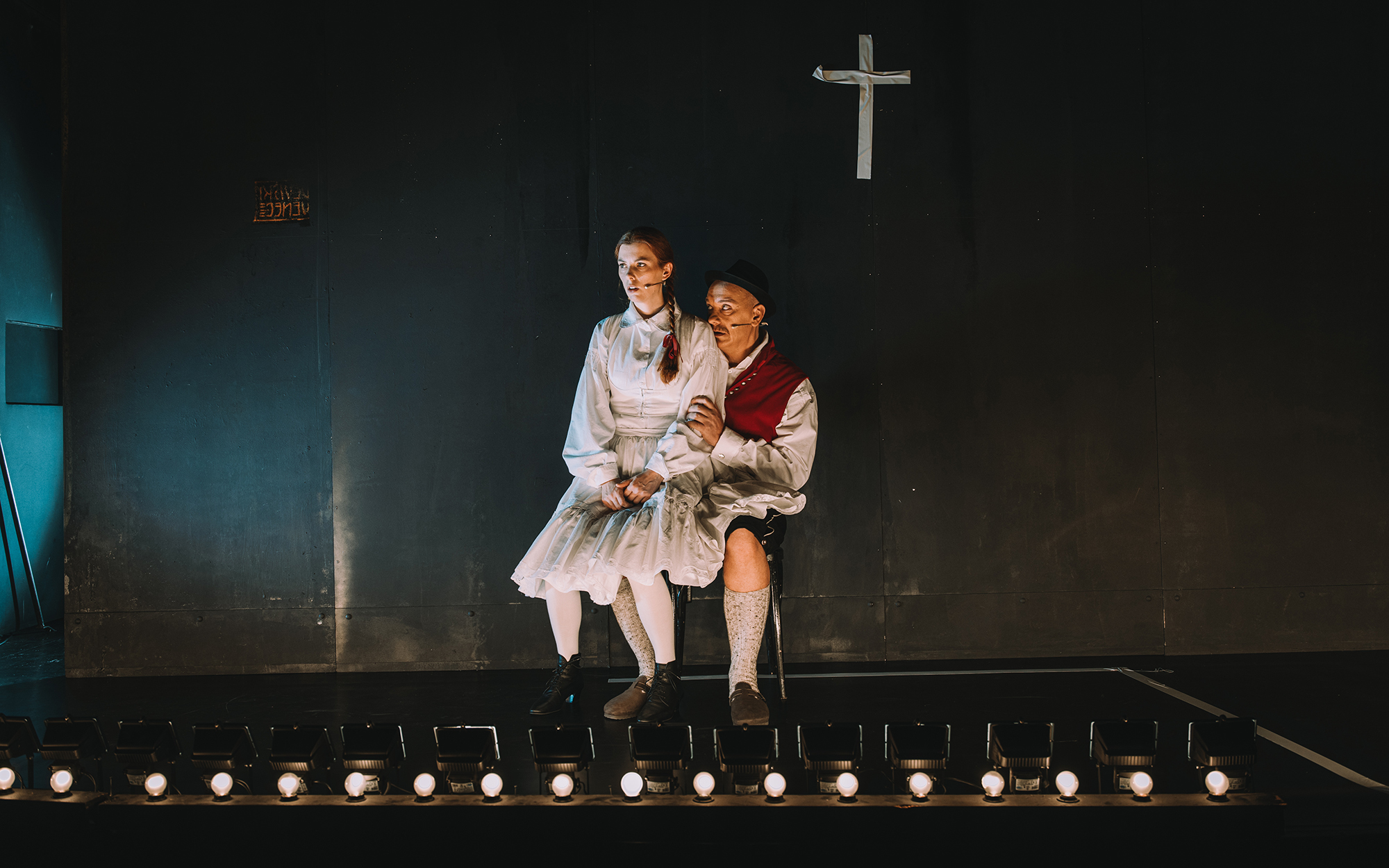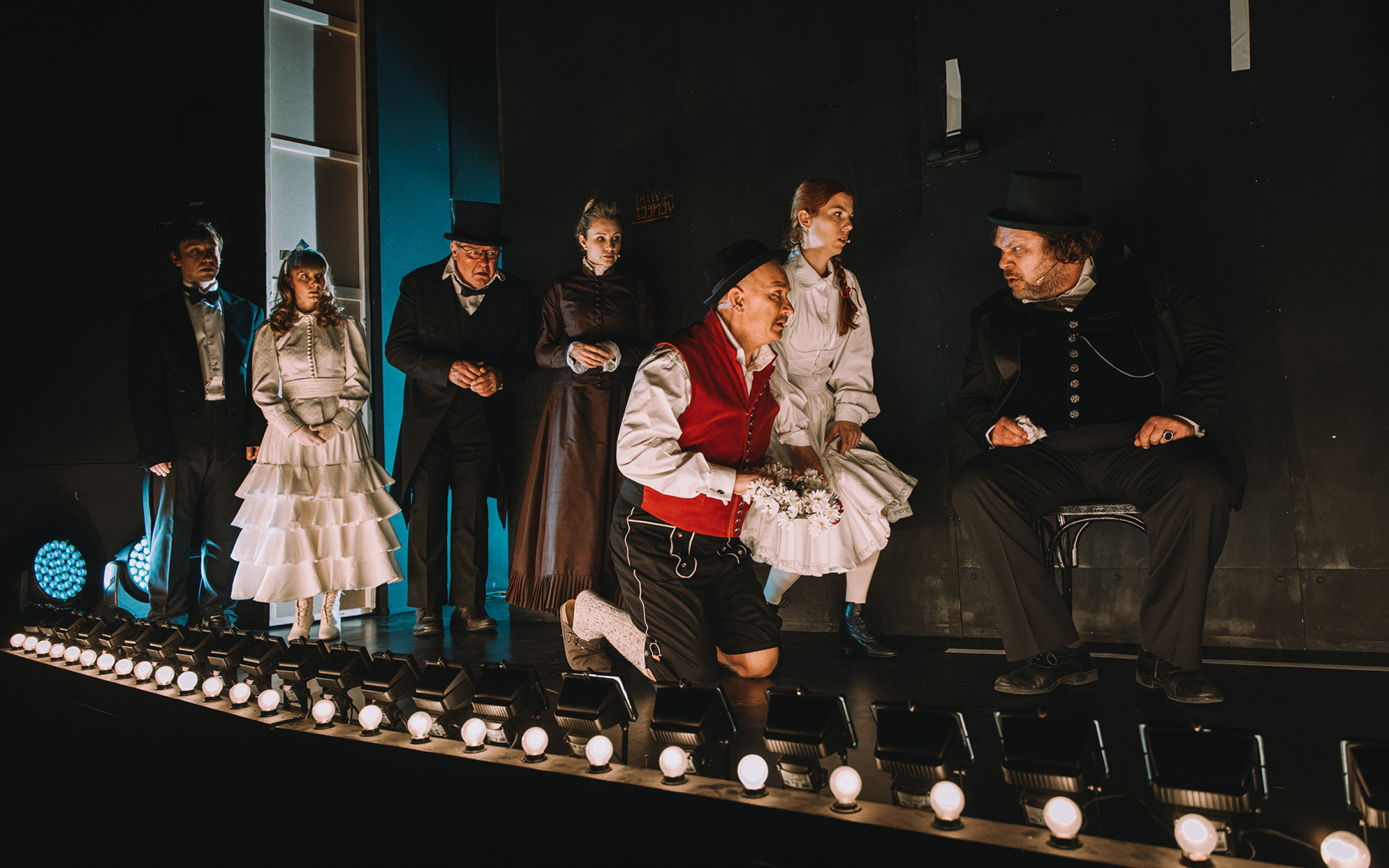Anton Tomaž Linhart
THE MARRY DAY OR THE MARRIAGE OF MATIČEK
As long as there are rich people in the world who think that money makes them more worthy than anyone else, and can take whatever their hearts desire, this comedy will be relevant.
With his original adaptation of Beaumarchais’ satire, Anton Tomaž Linhart (1756-1795), the spiritual child of the Enlightenment, the son of a Slovenian woman and a Czech immigrant of bourgeois descent, laid the foundation stone of Slovenian theatre and drama. He proved beyond doubt that the peasant language of the ignorant and uneducated Slovenians may sound as artistic on stage as any other language, and he also managed to skilfully introduce the idea of freedom, fraternity and equality of all people into the text.
Ta veseli dan ali Matiček se ženi, 1790
Comedy in five acts
Premiere: 5. December 2024
Performance length is 1 hour and 25 minutes and has no pause.
Creators
Director and set designer
Diego de Brea
Dramaturg
Ira Ratej
Costume designer
Leo Kulaš
Music selector
Diego de Brea
Language consultant
Barbara Rogelj
Lighting designer
Boštjan Kos
Sound designer
Matija Zajc
Assistant to costume designer
Lara Kulaš
Assistant to dramaturg
E. Jagodic
Actors
Baron Naletel
Primož Pirnat
Rozala, his wife
Iva Krajnc Bagola
Matiček, gardener
Uroš Smolej
Nežka, maid
Tina Potočnik Vrhovnik
Tonček, student on vacation
Nejc Jezernik as guest/Filip Štepec as guest
Zmešnjava, lawyer
Boris Kerč
Žužek, office clerk
Jožef Ropoša
Jerca, mayor's doughter
Lena Hribar Škrlec
We meet Matiček, the baron’s newly-appointed personal servant, at the moment when his darling Nežka reveals that the raunchy baron Naletel wants to lure her into his bed before their wedding. Immediately, Matiček decides that he will draw baron’s attention away from his bride by igniting the flames of jealousy. Rozala, lady of the manor and baron’s lonely wife, in her insatiable longing for love, innocently flirts with Tonček, a student, who returns her affection. For a moment, Matiček manages to outwit the baron, but his momentum is halted by a fatal promissory note. Some time ago, Matiček borrowed money from Smrekarica and signed a promise to marry her, if he could not pay her
back. Matiček is still out of money and Smrekarica demands what’s hers. The baron, who is also an arbitrator in such disputes, decides under the guise of justice that Matiček is to marry his lender. At the core of the basic plot is an intrigue, initially conceived and directed by Matiček, but later devised and taken over by Madame Rozala and Nežka, who unravel the mess and bring it to a happy ending. Meanwhile, Matiček utters the words about the baron that even now resonate with boldness:

“Is he any better than me? Take away his money, his relatives, his name, pull down this empty blanket and put him where he is, as a man on his own; as such, he won’t be worthy enough to serve me.”
Not only is there no difference between the lords and the subjects – except in wealth, title and costume –, the ruling class is so morally corrupt that it is worth less than its subjects. The Marry Day or The Marriage of Matiček is a cross-section of society, a cry of revolutionary rebellion against the unjust social order and a spark of fire that spiritually places the Slovenians alongside the European nations.
Diego de Brea, the acclaimed award-winning director who most recently directed Yasmina Reza’s black comedy God of Carnage and Ionesco’s absurd drama The Bald Soprano at the Ljubljana City Theatre, tackles each comedy in a unique and original way that evades the firmly established premises of comedy: he unravels the comic in a way that is both unexpectedly poignant and bizarre, because each comedy is born out of indignation aroused by the state of the world and the state of the mind.


